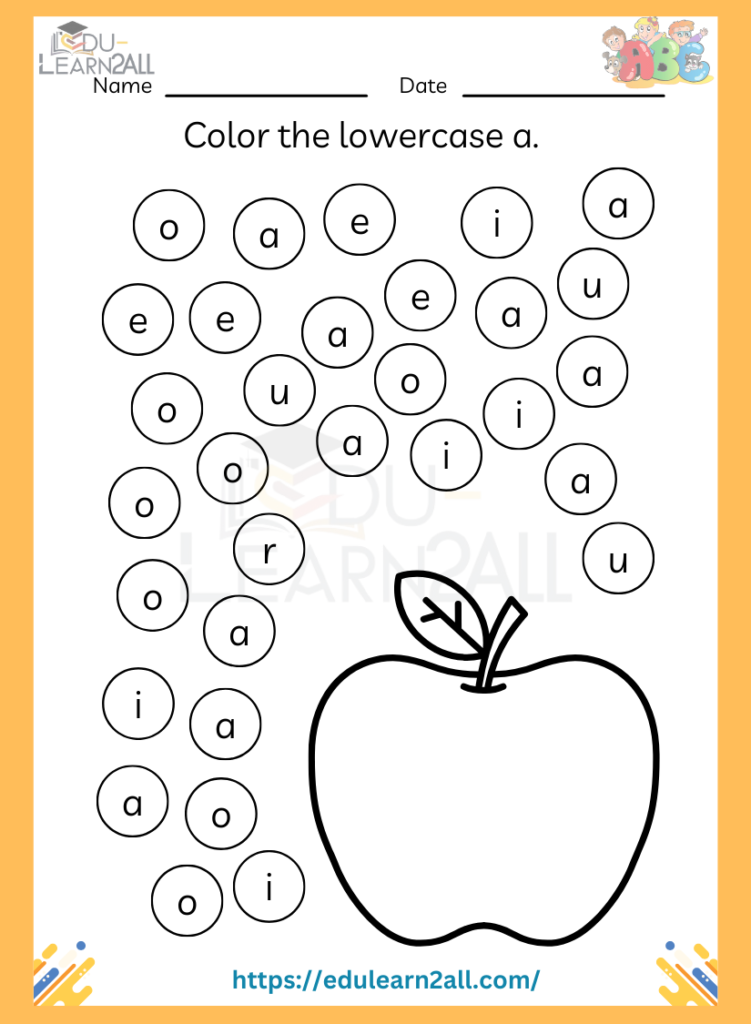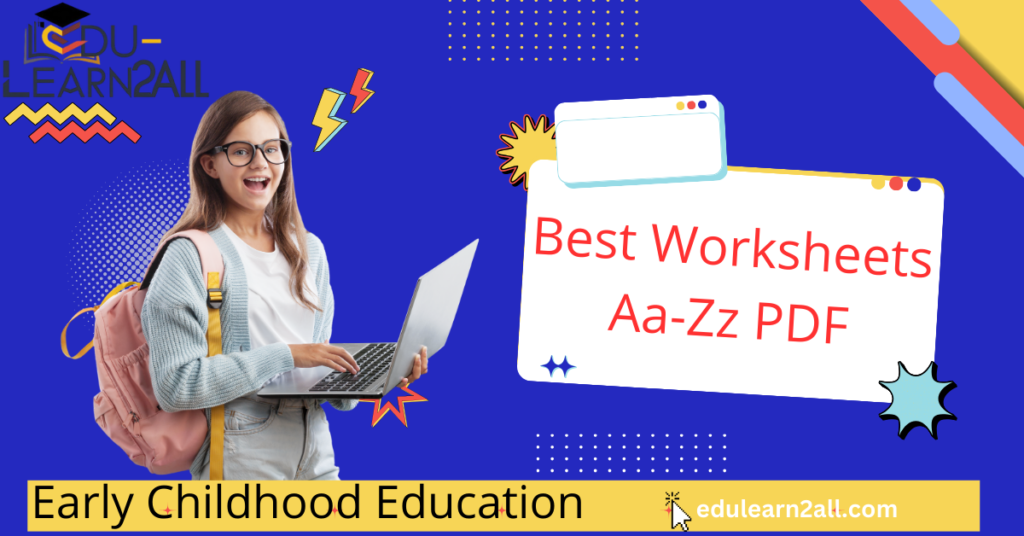Introduction
Primary Early Childhood Education is the most important stage of development. Where the youth learns new concepts according to his mind and works hardest to master. In early education, make children work mostly according to worksheets so that they can easily complete their work. which provide structured and cognitive activities according to the child’s developmental level.
These worksheets are designed only for kids where kids can easily understand and solve it. And worksheets are tools that spark curiosity, creativity, and the ability to learn on your own. Here’s a sneak peek at the importance of how they support early childhood education.
Benefits of Early Childhood Education Worksheets
Skill Development
We have designed Early Childhood Education for children to develop important skills. In which first the child will trace the letter. Then after that he will write the letters himself so that the child can practice along with him. After writing the letter, it will fill the color inside the capital letter and also recognize it. After recognizing and coloring the uppercase letter, the child should identify the lowercase letter and color in it as well. In this way, it will be easy for children to recognize letters.
Cognitive Growth Early Childhood Education
Encouraging children to think critically and make connections increases their ability to work. Our worksheets promote cognitive development. There are many more worksheets on our website that guide children. is For example, sequencing activities help children understand patterns and logical sequences, enhancing their reasoning skills.
Creativity and Imagination Early Childhood Education
This article features worksheet designs that also include coloring pages that inspire creativity. These activities reinforce the concepts taught to children. Children gain a lot from activities.
Engagement and Focus Early Childhood Education
Early Childhood Education help children develop structured work, focus and discipline. Children also feel a sense of accomplishment as they complete their worksheets. In this way confidence and motivation develop in children. It also builds confidence in children so that they are encouraged to tackle more difficult tasks.
Types of Early Childhood Education Worksheets
Alphabet and Phonics Worksheets
- Help children recognize letters and their sounds.
- Include tracing, matching, and phonics-based games.
Number and Math Worksheets
- Focus on counting, number recognition, and basic operations like addition and subtraction.
- Feature fun activities such as dot-to-dot puzzles and number mazes.
Science and Nature Worksheets
- Introduce basic concepts about the environment, animals, and the weather.
- Include activities like matching animals to their habitats or identifying plant parts.
Social and Emotional Learning (SEL) Worksheets
- Teach children about emotions, sharing, and teamwork.
- Use storytelling and role-playing prompts to build empathy and social skills.
How to Use Worksheets Effectively
Alphabet Activities to the Child’s Age and Ability
Choose worksheets that align with a child’s developmental stage to keep learning engaging without being overwhelming.
Combine Worksheets with Hands-On Activities
Pair written tasks with physical activities like building blocks or interactive storytelling for a holistic learning experience.
Encourage Exploration and Curiosity
Allow children to experiment and make mistakes while completing worksheets. This fosters resilience and a growth mindset.
Maintain a Balance
While worksheets are valuable, ensure they are part of a diverse educational approach that includes play, exploration, and social interaction.
Creating Your Own Worksheets
Early Childhood Education Parents and educators can design personalized worksheets to cater to specific needs. Here are some tips:
- Use bright, appealing visuals to capture attention.
- Include interactive elements like cut-and-paste or connect-the-dots.
- Incorporate themes children love, such as animals, space, or fairy tales.
Conclusion
Early childhood education worksheets are indispensable tools for young learning and nurturing skills. Used thoughtfully, they pave the way for a lifelong love of learning within children and help them build the skills necessary for academic and personal success. Whether you are an educator or a parent, incorporating these worksheets into a child’s routine can have a lasting impact on their growth and development.
Note
We have designed some worksheets for kids below our article. With which the child will be very happy. These worksheets have 4 steps and are also guided by the children.
Trace the letter Aa
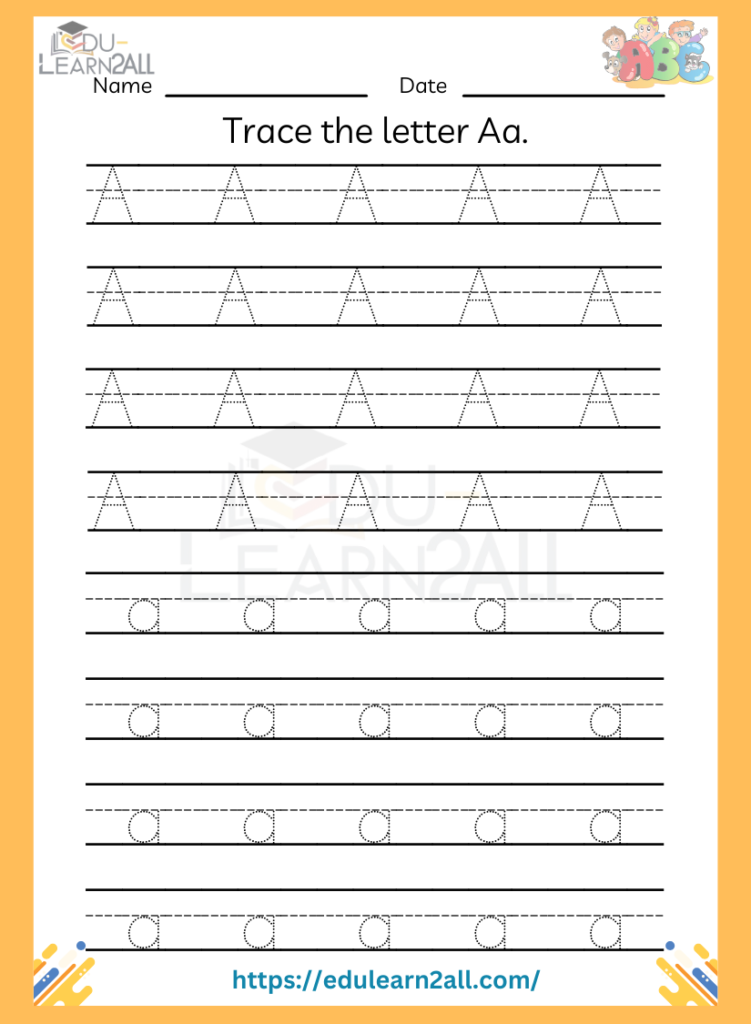
Write the letter Aa
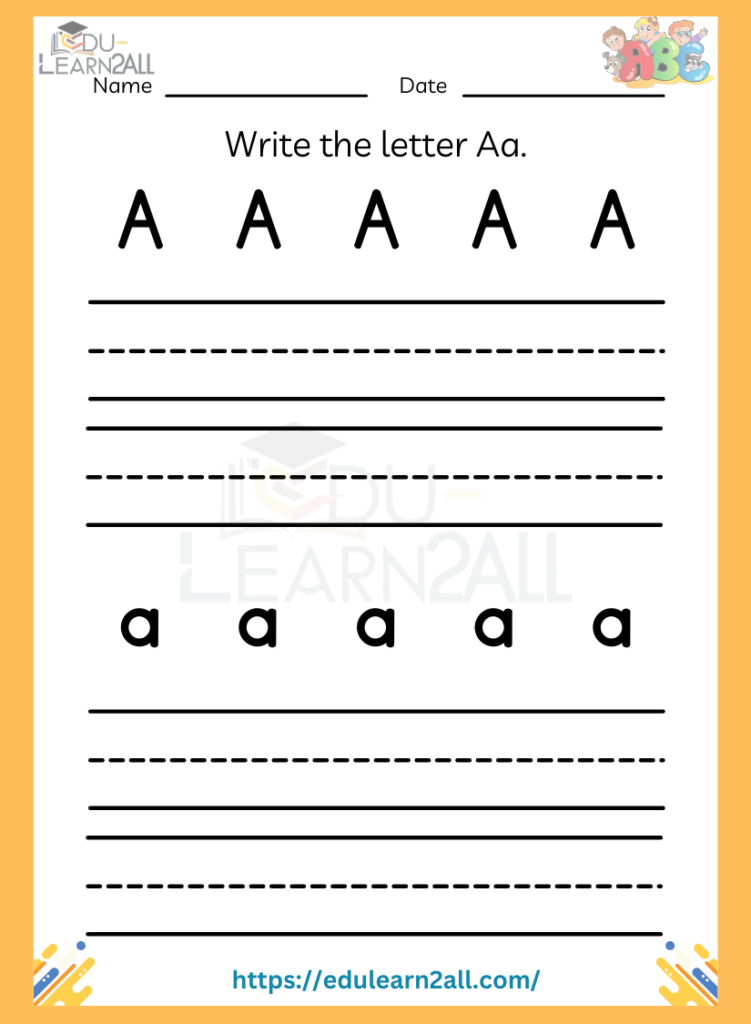
Color the uppercase letter A
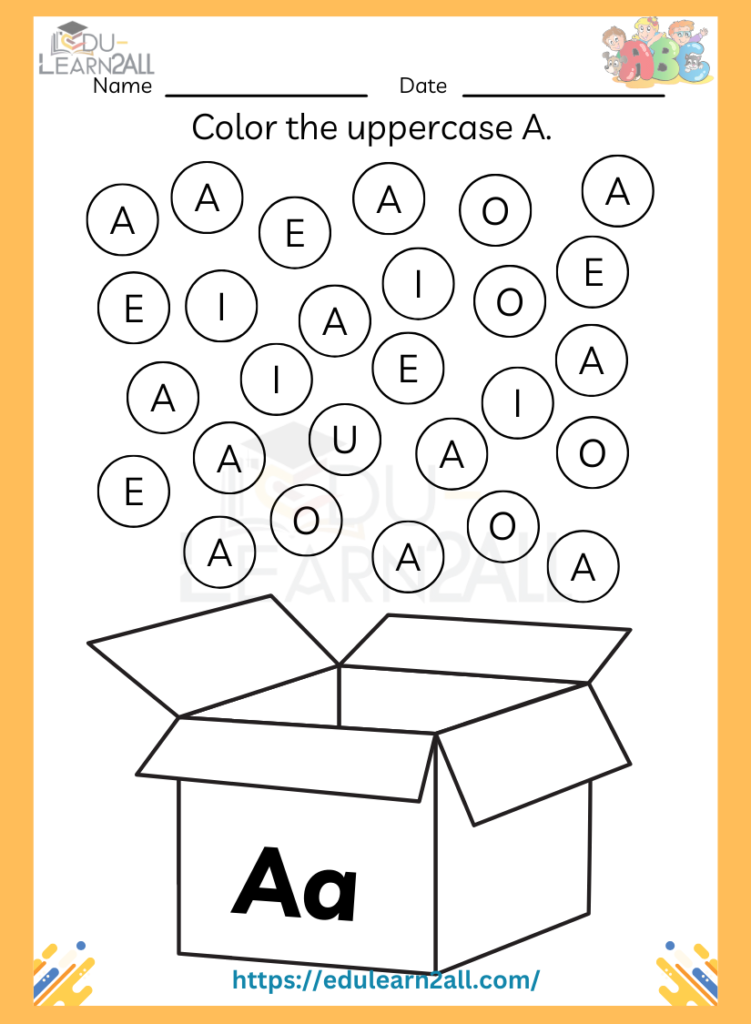
Color the lowercase letter a
